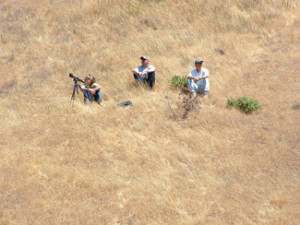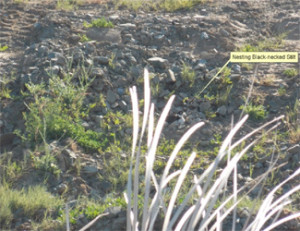 Avian and Wildlife Toxicology/Ecotoxicology
Avian and Wildlife Toxicology/Ecotoxicology
ardea consulting provides advice for and conducts environmental sampling to estimate levels of contamination, and then interprets the results for potential adverse effects on birds and other wildlife. We conduct natural resource inventories to establish lists of species at risk of exposure to contaminants or for other goals of the client. ardea also provides follow-up advice on and evaluation of appropriate biological monitoring to more fully evaluate any potential risk to birds and other wildlife. In addition, we assist with issues concerning general wildlife ecology.
General Avian and Wildlife Issues
ardea advises or assists with issues dealing with wildlife ecology or management. For example, we help landowners attain the desired wildlife composition on their properties, suggesting practices to increase or decrease the presence of birds and other wildlife.
Wetland Delineation
ardea offers wetland delineation services by staff fully trained in the use of the U.S. Army Corps of Engineer Wetlands Delineation Manual.
Sample Projects
Project #1: Bird Nesting Success Study
Problem: A client needed to conduct a bird nesting success study to determine whether birds inhabiting a PCB-contaminated floodplain were adversely affected.
Solution: ardea consulting worked with the client and others to design the field protocol and to locate nests and monitor their success.
Result: ardea drafted portions of the report and summarized all field data collected.
Project #2: Nesting Bird Surveys
Problem: A client needed to determine whether remediation activities would disturb nesting raptors and other special status species.
Solution: ardea consulting performed Swainson’s Hawk surveys, nesting bird surveys, and assisted with conducting surveys for endangered rail species.
Result: ardea drafted the reports and helped the client avoid activities that could disturb nesting raptors near active nests.
Project #3: Sampling of Honey Bee Nectar and Pollen
Problem: A client wants to know whether nectar and pollen brought by honey bees back to the hive contain pesticides in an urban/suburban setting.
Solution: ardea consulting identified backyard beekeepers willing to participate in the study and sampled fresh pollen and nectar from the hives.
Result: Study is on-going.
Previous experience
Prior to establishing ardea consulting, Dr. Sullivan was principal investigator on multi-site studies evaluating field effects of pesticides to passerines, quail, and raptors. He also investigated reproductive success and nestling behavior of great blue herons.
